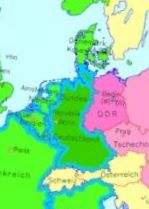The story so far: WikiLeaks posted some secrets, the US governments throws a hissy fit and some spineless companies see it as their “patriotic duty” to withheld service from WikiLeaks. This doesn’t especially endear them to the 4chan/Anonymous crowd which then starts to DDoS the pushovers.
So how is a Civil Libertarian and Network Security guy supposed to react to that?
Two bads don’t make a right. There are better ways to show disgust of and punish those electronic money movers. Attacking their operation cannot be the right answer.
But: I’ve been arguing for years now that one of the few ways to actually shut down some of the real menaces (not the imagined ones like WikiLeadks) of the Internet like Spammers, Fake AV Software scams, Viagra/… sellers, and other frauds would be to deny them the credit card payment option.
Thus, MasterCard and Visa: If you are so eager to distance yourself from WikiLeaks, when nobody can even tell you what actual laws they are supposed to have violated, why are you not able to deny service to the frauds when it is absolutely clear that they violate laws and cost the worldwide economy huge sums of money to clean up their crap?
 vs.
vs. 
